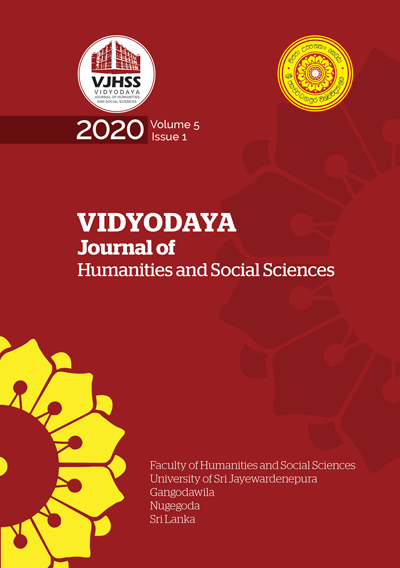Socioeconomic and Environmental Factors Influencing Access to Resources in a Fishing Community: A case Study in Rekawa, Sri Lanka
Abstract
Mode of production of a society is an essential element of the social system, and it can be influenced by different socio-economic and environmental factors. Hierarchical arrangements and contextspecific rules also can affect the way in which a particular community is organized. This study explores how social structure influences access to resources as claimed by different social segments in a fishing community in Sri Lanka. Because fishery in rural fisher communities requires a high level of communal labour, the role played by the community alongside government and private organizations in different activities of fishing is predominant. Based on a case study in Rekawa – a fishingcommunity in Sri Lanka, data were collected using participatory rapid appraisal and interviewer guided questionnaire. The study shows that different socio-economic and environmental factors influence different strata in the fishing-community differently when natural resources are accessed. In addition, the social hierarchy through which culture is imposed on anglers would then influence the way in which the access is granted to fishers. Consequently, people of Rekawa fishing-community are likely to reflect their social position in line with the identity they have perceived being a member of a particular fisher-group in the same community.



